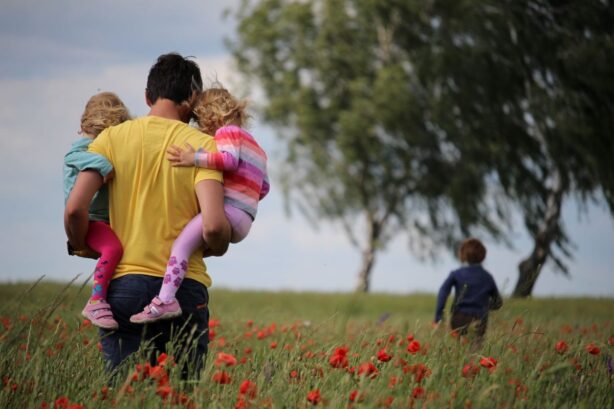In the journey of life, families often encounter unexpected storms that can shake the very foundations of their existence.
Traumatic events, such as the loss of a loved one, a natural disaster, or a sudden health crisis, can be profoundly challenging for every member of the family.

However, it’s crucial for family members to understand that, despite the initial turbulence, they have the strength to weather the storm together.
If your family is currently struggling to heal from trauma, consider these strategies to help you move forward together in unity.
Open Communication
One of the first steps in moving through a traumatic event as a family is open communication. Establishing an environment where every family member feels heard and understood is paramount.
Encourage family members to express their thoughts and emotions without judgment, creating a safe space for vulnerability.
Take special care to talk with any children about expressing any grief, anger, or fear that they’re experiencing, so that you can help them process those feelings.
When family members feel comfortable expressing themselves, it can help to reduce stress and increase positivity within the household.
Encouraging healthy emotional expression is a valuable tool in strengthening family relationships and promoting overall well-being.
Find Professional Support
Just as a ship needs a skilled captain to navigate rough waters, families benefit from professional guidance during traumatic events.
Therapists, counselors, and support groups can provide invaluable assistance in helping family members cope with the emotional toll of trauma.
Sometimes, traumatic events may also involve legal complications that require the expertise of a lawyer. In such scenarios, it’s incredibly helpful to seek professional help.
For example, consulting with legal experts like those at The Trapani Wrongful Death Law Firm may be necessary in the case of an unexpected and potentially preventable death.
Dealing with the injury of a family member, or the legal aspects of dispersing with a will may require legal assistance as well.
Having support from trained professionals lets families concentrate their energy on emotional healing and familial bonding.
By seeking professional support, families gain the tools to understand and manage their emotions, fostering a collective resilience that aids in the healing process.
Establish Routines and Normalcy
When trying to heal from trauma, maintaining a sense of normalcy can become a stabilizing force for families. Establishing routines, even in the face of upheaval, provides structure and predictability.
This can include regular family meals, designated family time, or other rituals that create a sense of continuity.
Consistency helps family members regain a sense of control and stability after facing a traumatic event, contributing to their overall well-being.
Cultivate Individual and Collective Strengths
Traumatic events often challenge families to discover untapped strengths within themselves.
Encourage family members to explore their individual talents and passions, emphasizing the importance of self-care. Simultaneously, identify and nurture the collective strengths of the family unit.
This could involve collaborative problem-solving, shared responsibilities, and celebrating small victories together.
By recognizing and leveraging their strengths, families can empower each member to contribute to the healing process and move forward to happier days.
Set Realistic Expectations
Moving through a traumatic event is a process that takes time. It’s crucial for families to set realistic expectations and not rush the healing process.
Acknowledge that grief and recovery are non-linear, and different family members may navigate through them at different paces.
Patience, empathy, and a willingness to adapt to changing circumstances are essential components of the journey.
Nurture Hope
During tough times, it’s easy to get bogged down with negative thoughts and feelings. That’s why nurturing hope is so important.
Helping your family to focus on future goals and aspirations will help to ensure everybody feels positive and motivated.
It’s all about keeping an optimistic outlook, and knowing that things will get better.
There are many different ways to do this, from setting individual goals for each family member, to bonding as a team to help one person overcome a challenge.
The important thing is that everyone in your family has something to look towards, even in the darkest times.
That promise of a happier future is what can help struggling family members move forwards from despair and find a brighter tomorrow.

Traumatic events can be devastating, but they also present an opportunity for families to demonstrate resilience, strength, and unity.
No matter the challenge your family is facing, working together to heal from the trauma will be essential in ensuring that everybody is able to move on to brighter days.
Remember, in the face of adversity, families have the power to emerge stronger and more connected than ever before.
